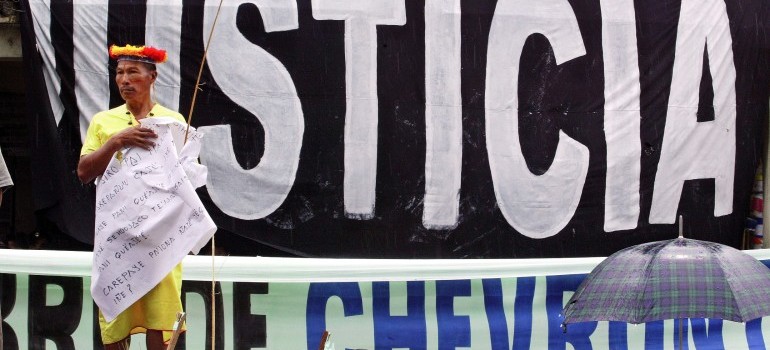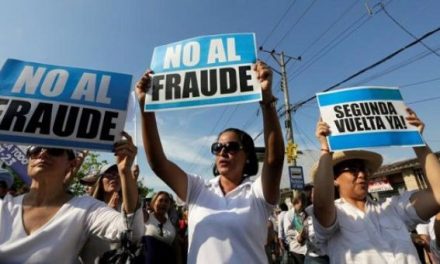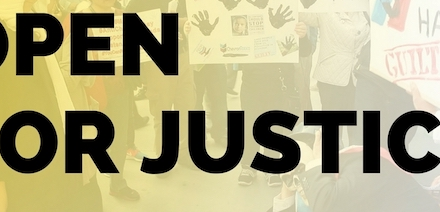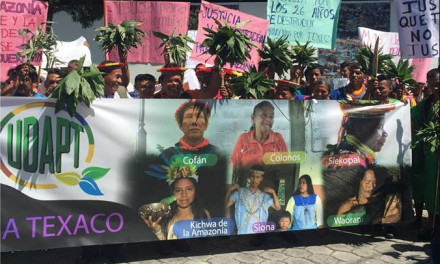CETIM, UDAPT, FORUM NOBIS prepared a report on Chevron in 2015. They submitted it to the United Nations Special Rapporteur on the situation of human rights defenders. This report asked the Special Rapporteur to question the United States and Chevron. To end the criminalization of those who defend the rights of communities affected by TNC activities in Ecuador. The indigenous peoples of the Ecuadorian Amazon.
Following this request, Special Rapporteur Michael Forst called the United States government to account, noting “bias and other procedural irregularities, including abuses in judicial proceedings brought by Chevron Corporation before federal courts (in US ed.)”.
The US government responded that the case “involved a private litigation matter to which the US government is not and need not be a party.” Curious reasoning on the part of a government that is supposed to fight human rights violations against the actions of third parties, even transnational corporations.
The UN Special Rapporteur on the situation of human rights defenders today deplores the US government’s failure to respond to specific questions addressed to him about the company’s actions. He thus vindicated the claims contained in the report and confirmed the legitimacy of this struggle.
Read here the full report of the CETIM, UDAPT and FORUM NOBIS submitted to the UN Special Rapporteur on the situation of human rights defenders.
Read here the U.S. government’s response.
Read here the response of the UN Special Rapporteur on the situation of human rights defenders (see p.36).
Reminder of the facts:
Chevron is responsible for one of the worst oil disasters on the planet. For 26 years, Chevron (then Texaco) extracted oil in Ecuadorian Amazon and polluted more than 450,000 hectares of one of the world’s most biodiversity-rich regions, destroying the place of life and livelihoods of its inhabitants. Chevron intentionally dumped the equivalent of 30 times the oil spilled during the Exxon Valdez disaster into the Ecuadorian rainforest. More than 60 billion litres of water loaded with toxic waste spilled into rivers and streams, and 880 pits were dug to store hydrocarbon waste.
After 22 years of litigation, and despite a condemnation of Ecuadorian justice, impunity continues for Chevron and the victims of his activities in Ecuador still await justice and compensation. Chevron, for his part, denies any responsibility, and devotes enormous resources and efforts to thwarting the judgment, harassing the victims and silencing their defenders.






